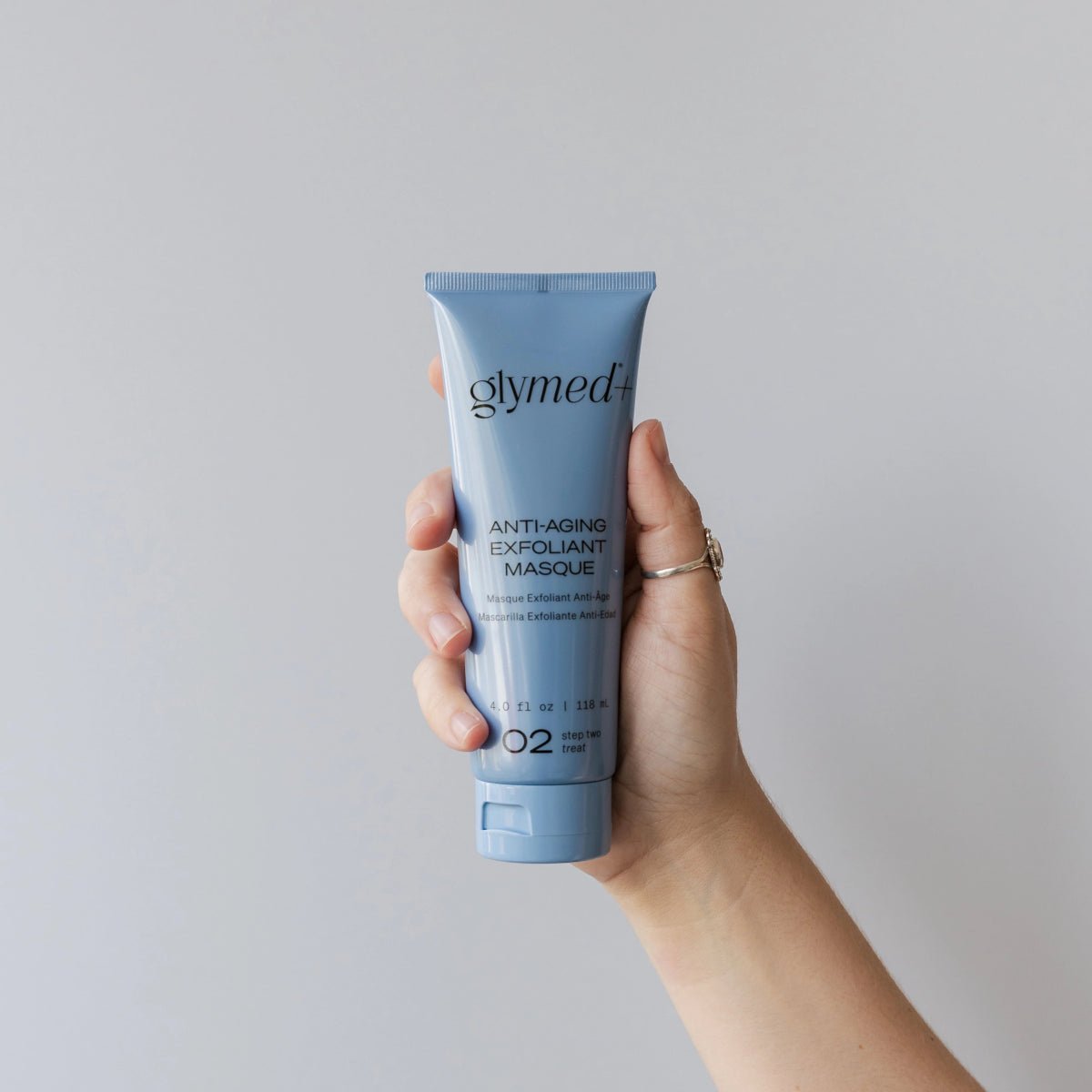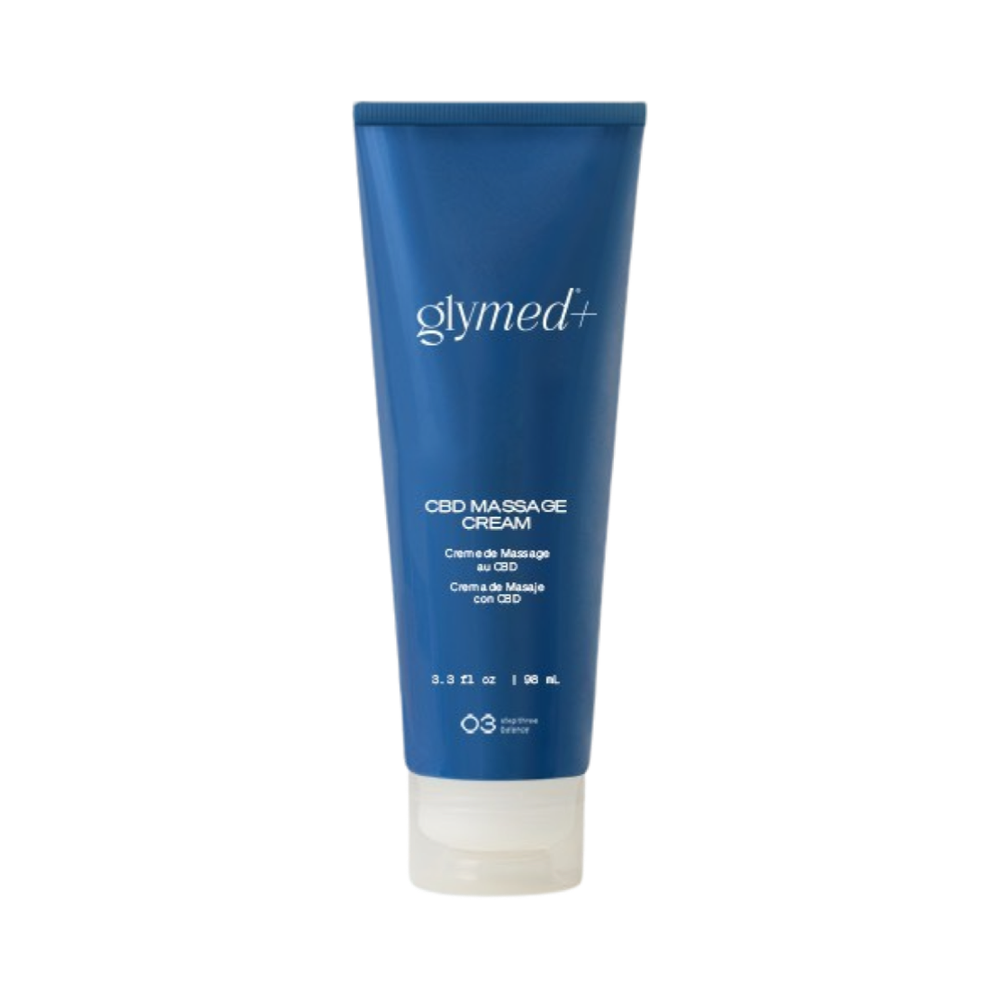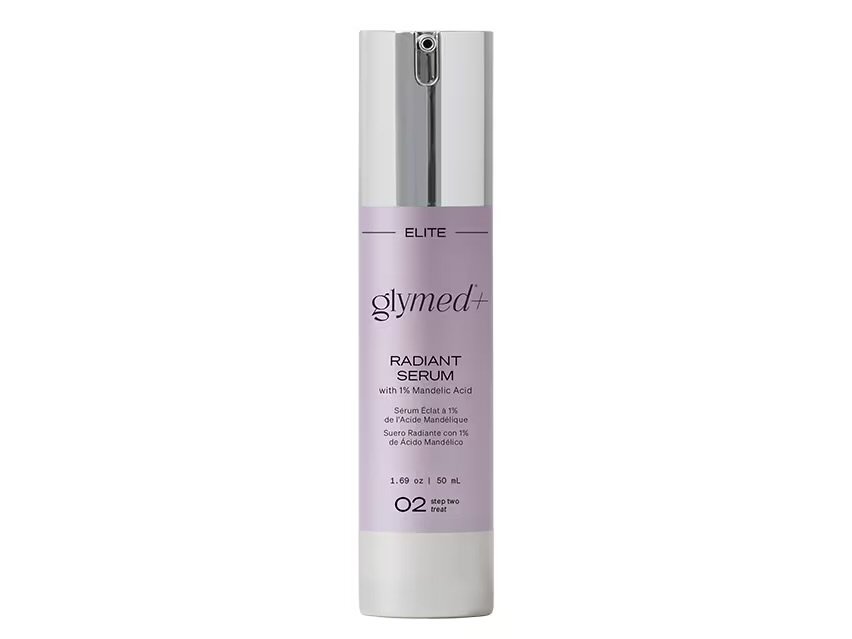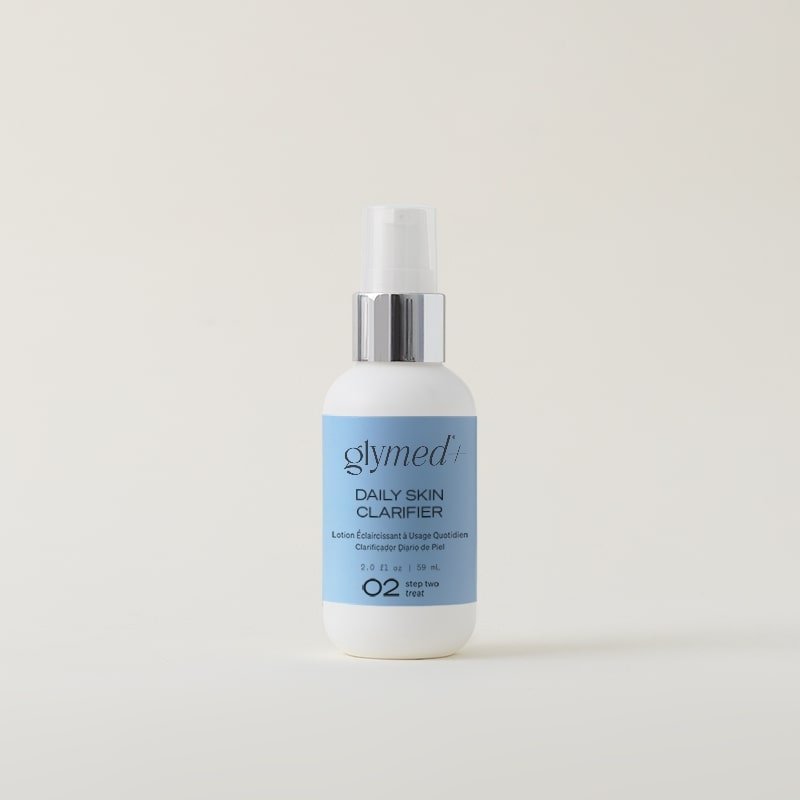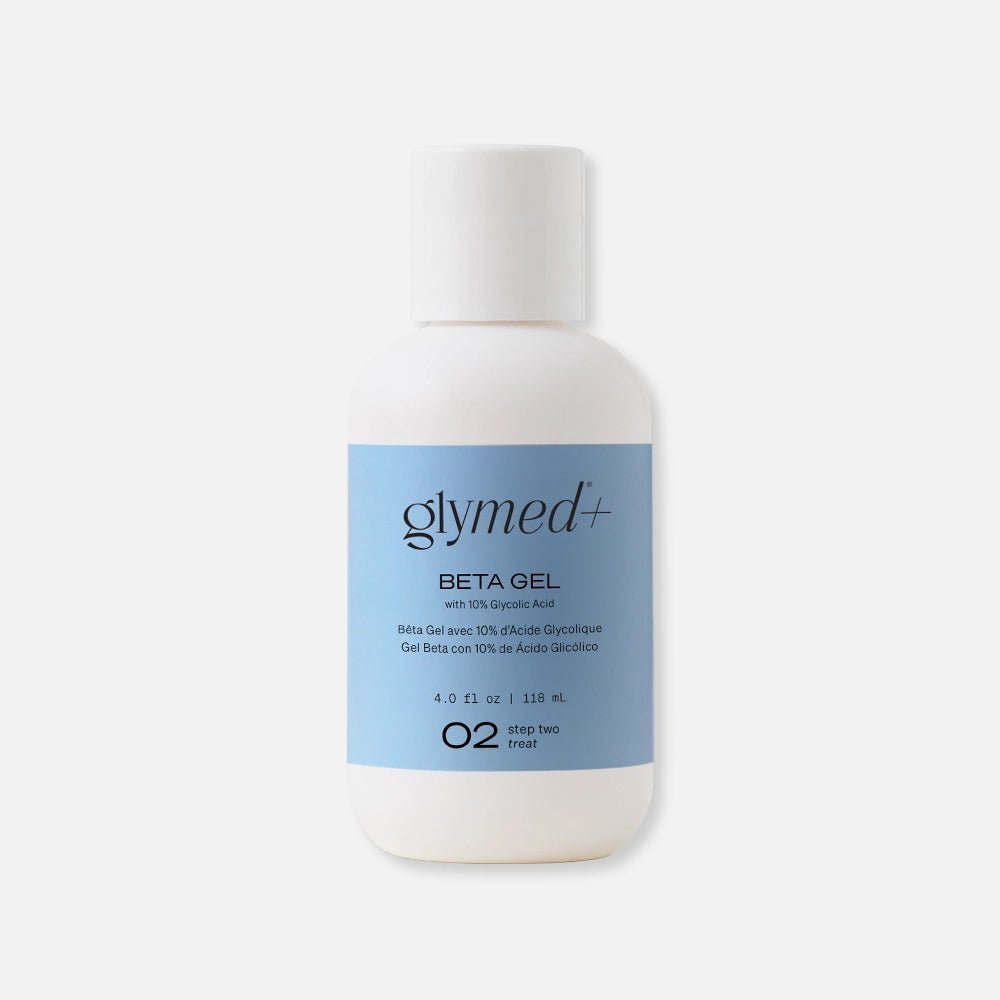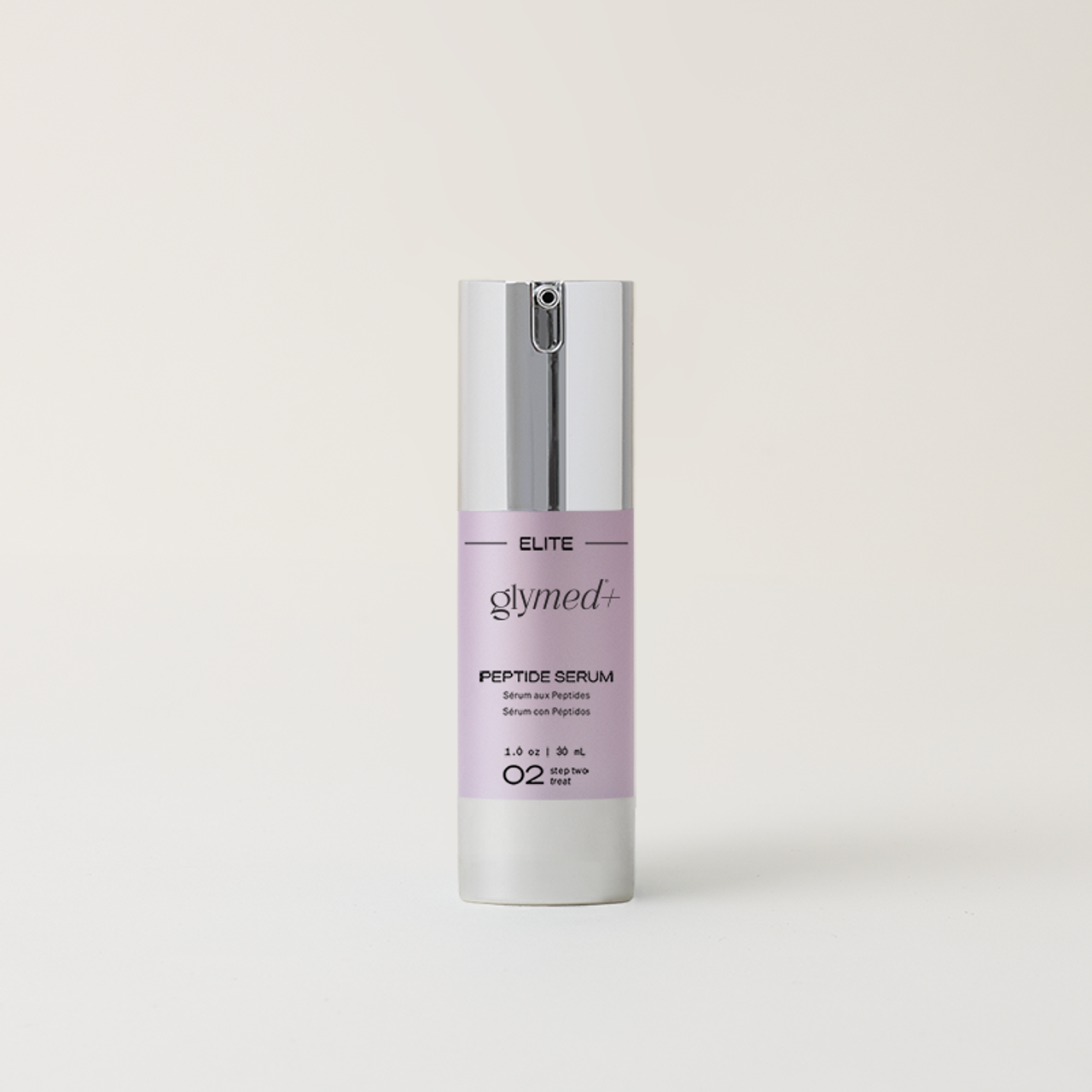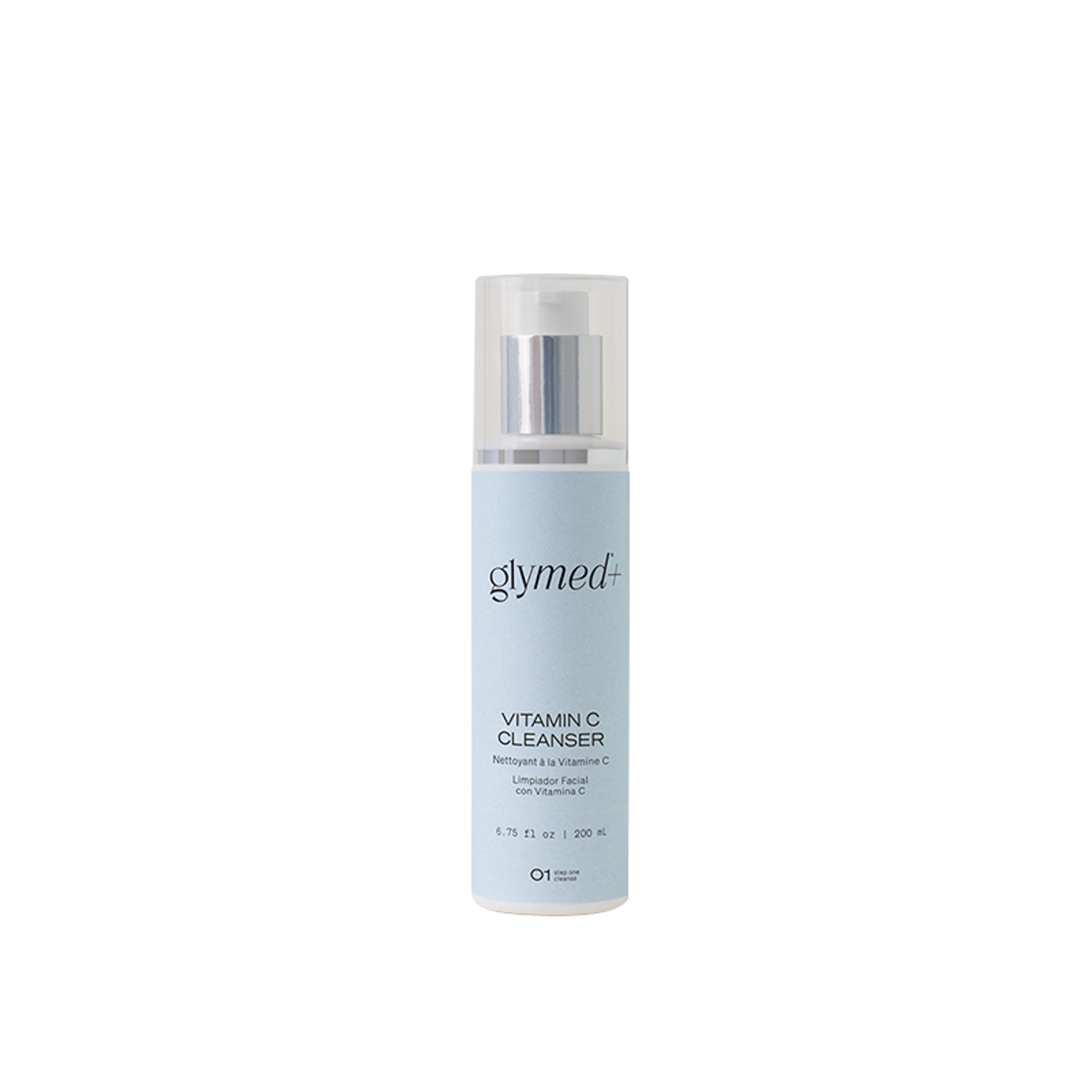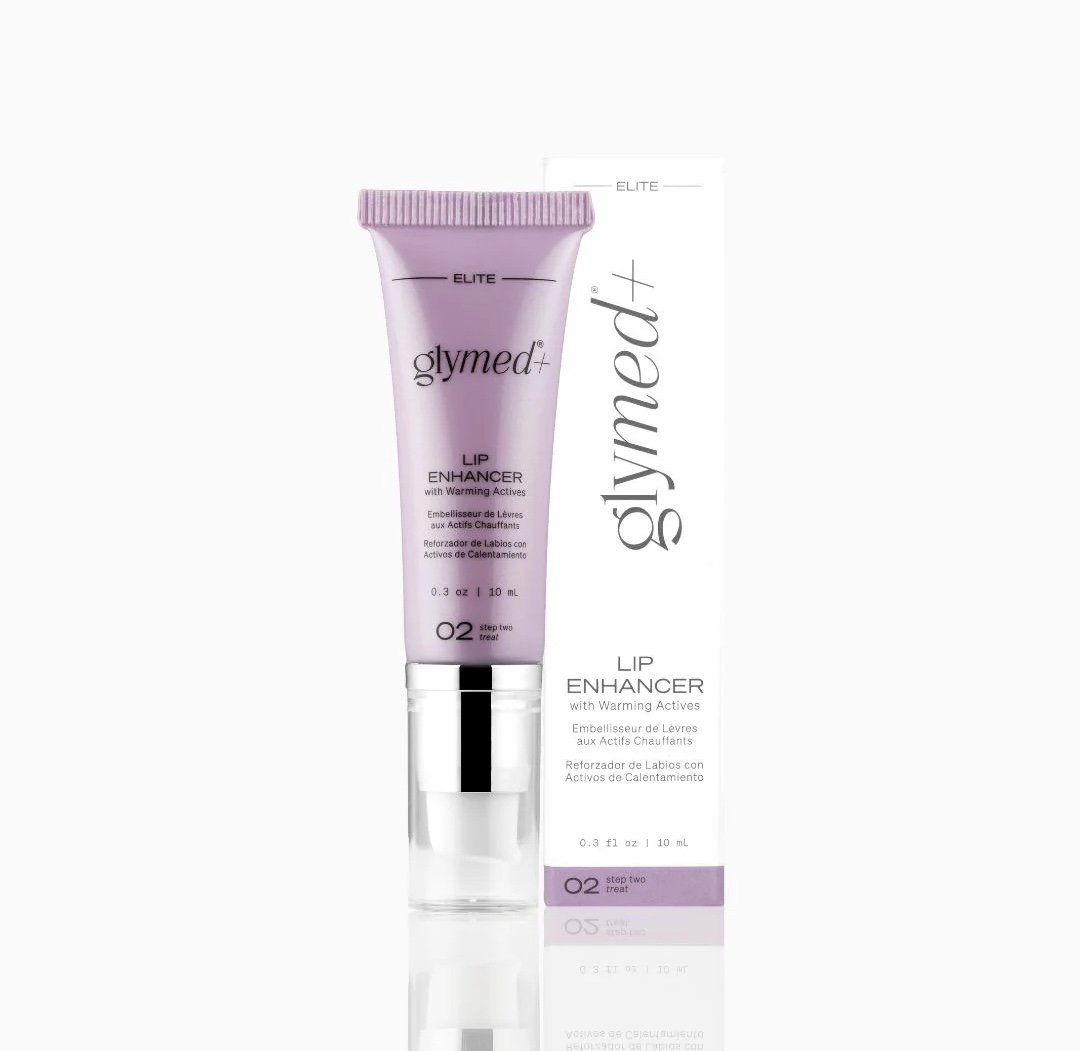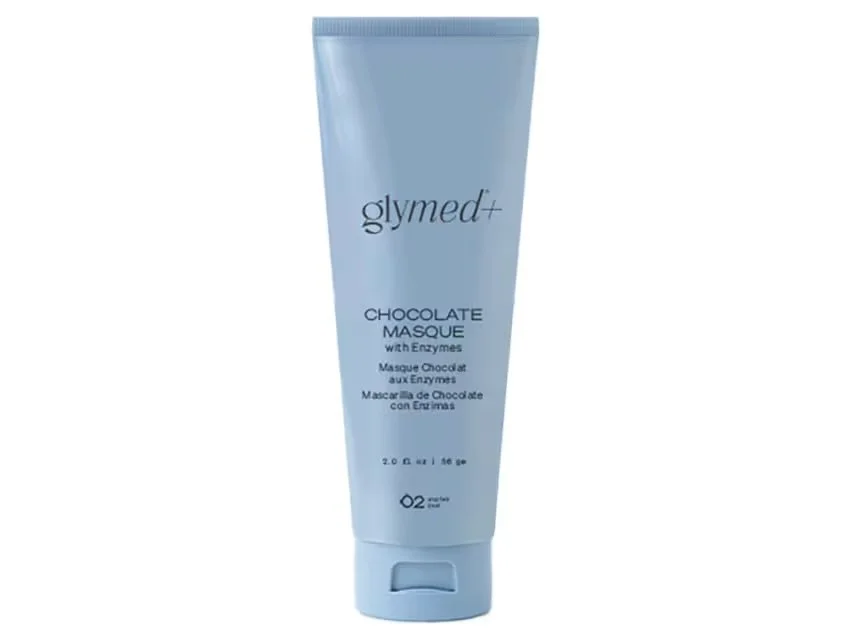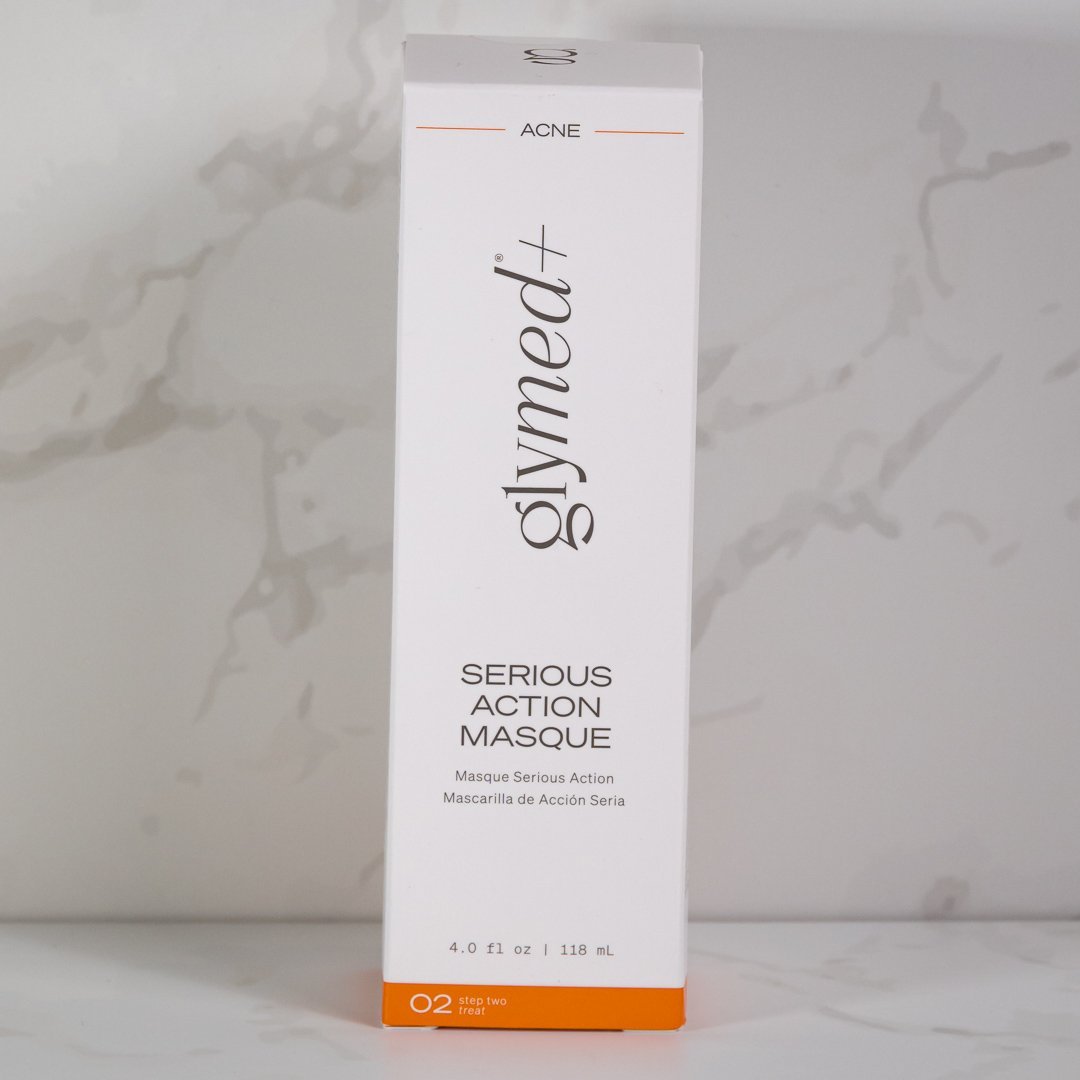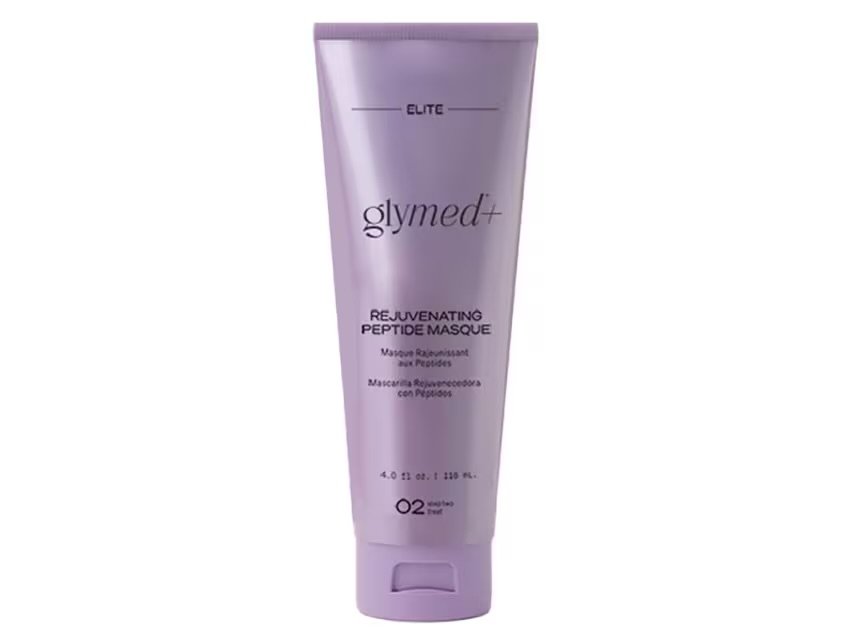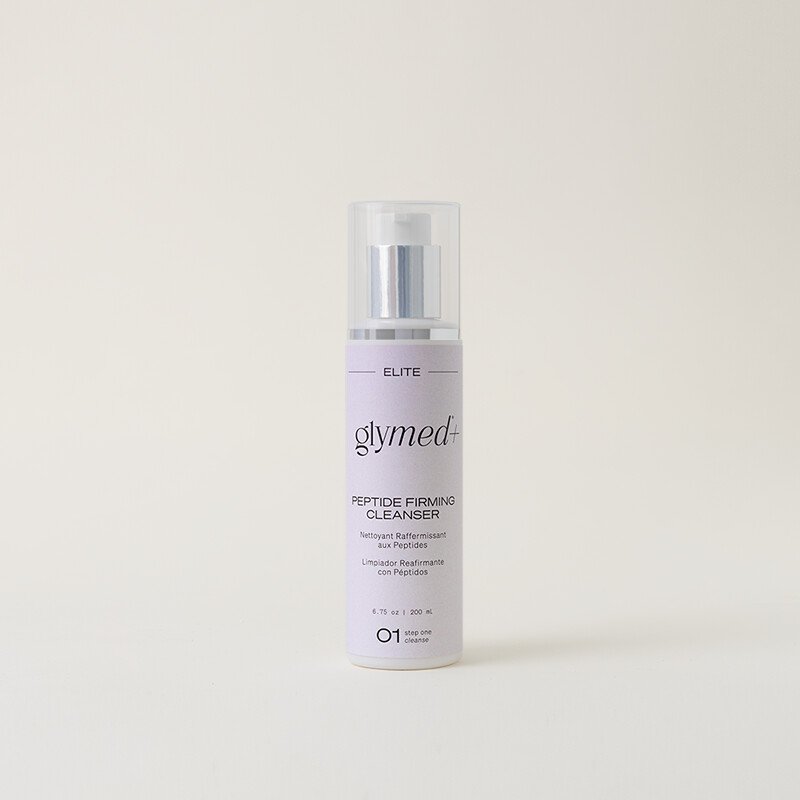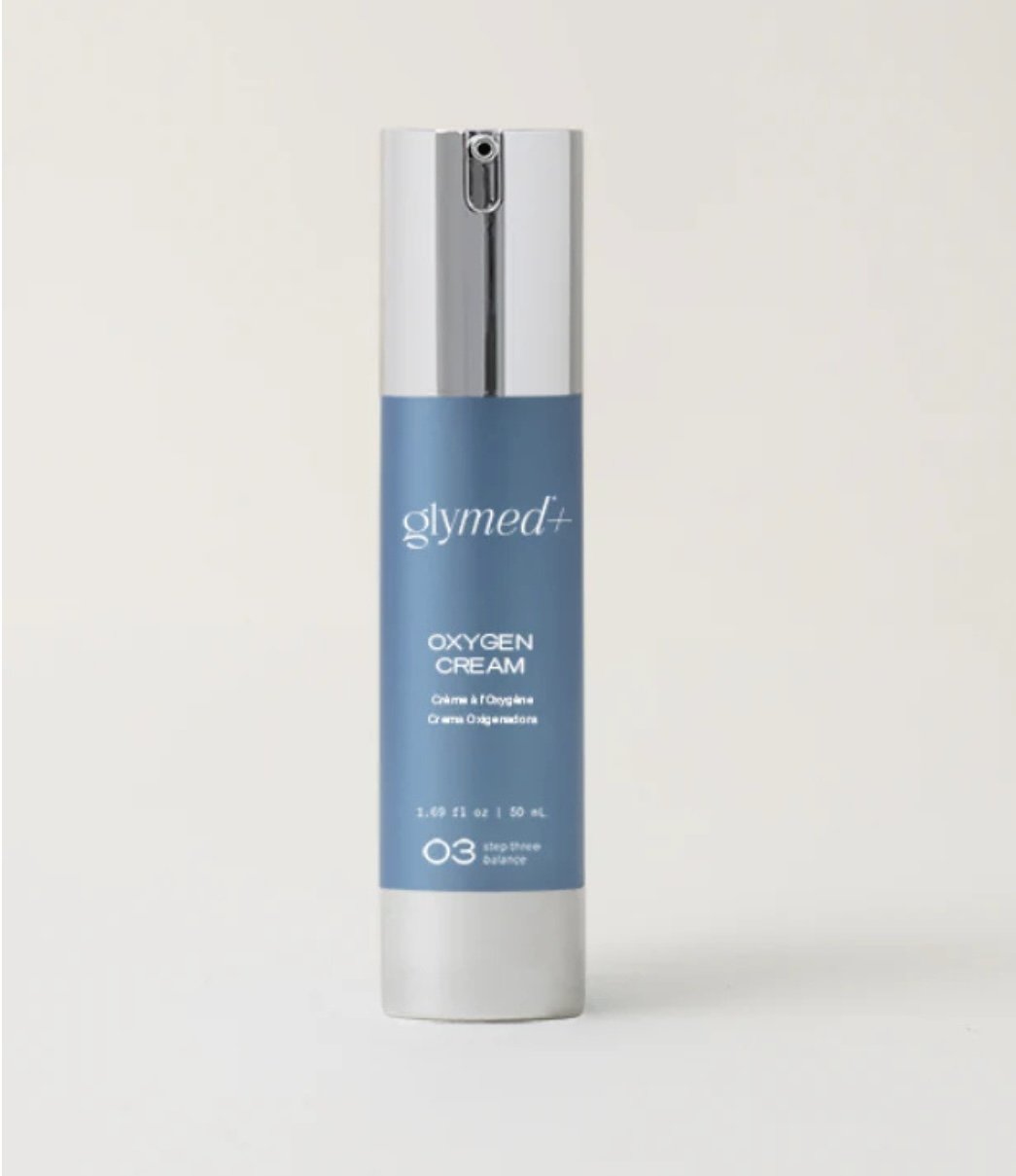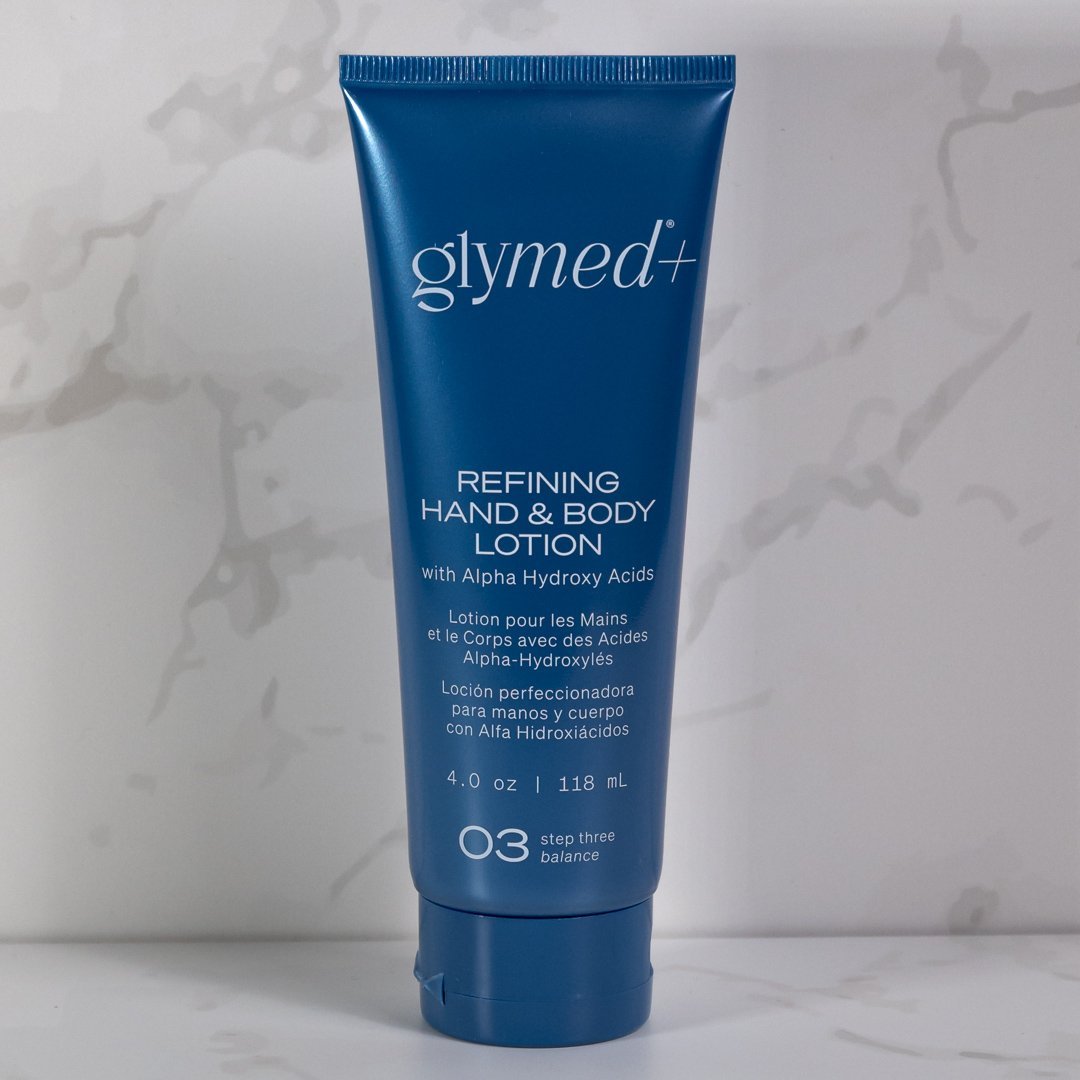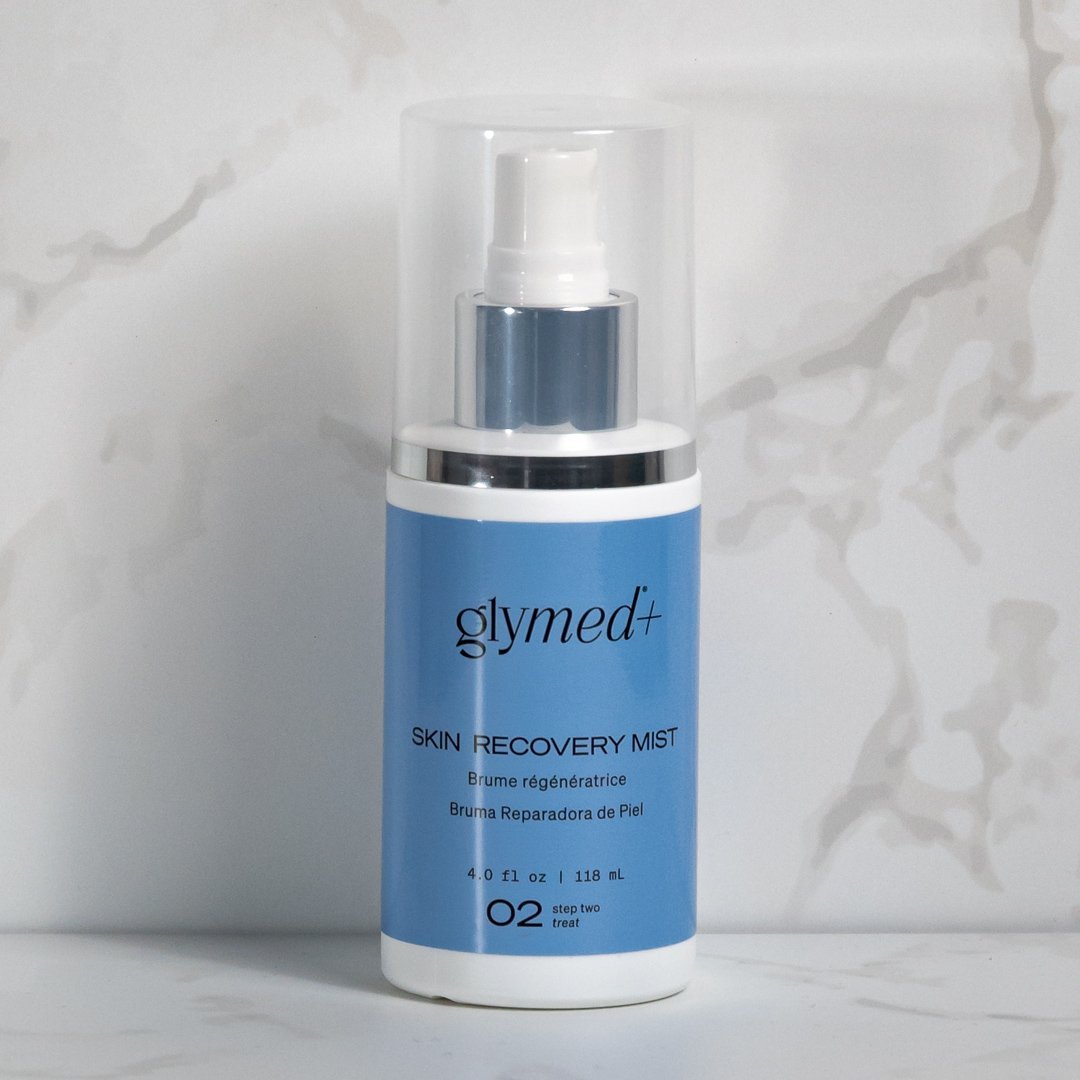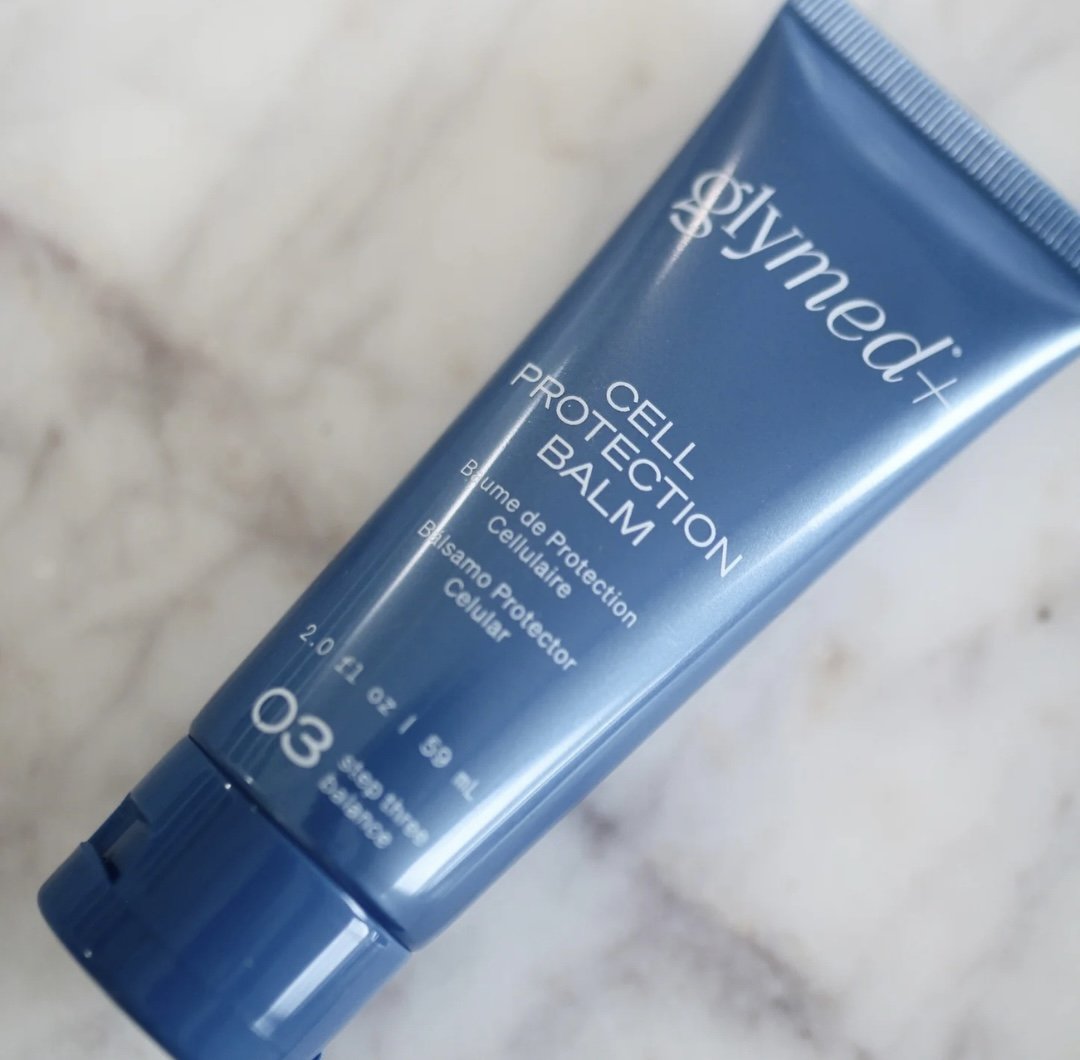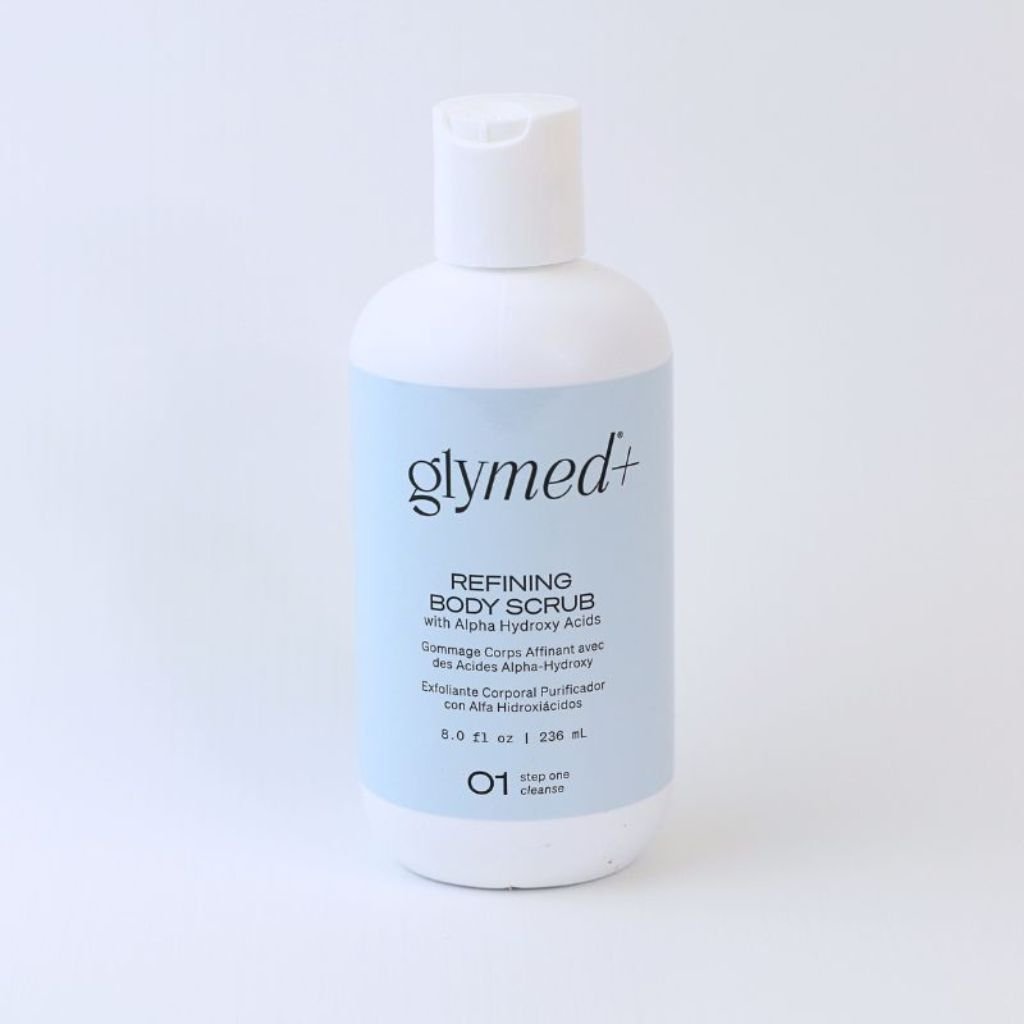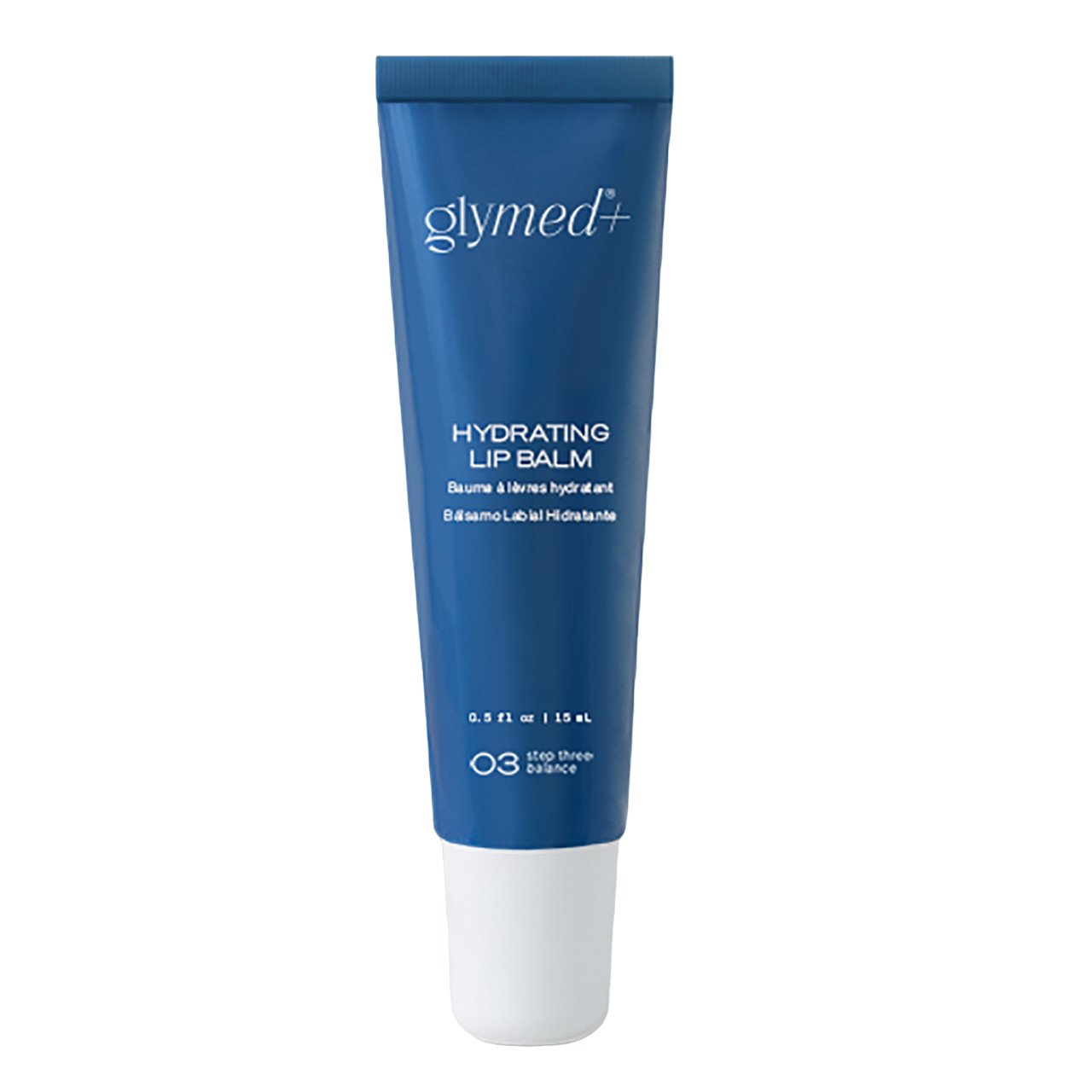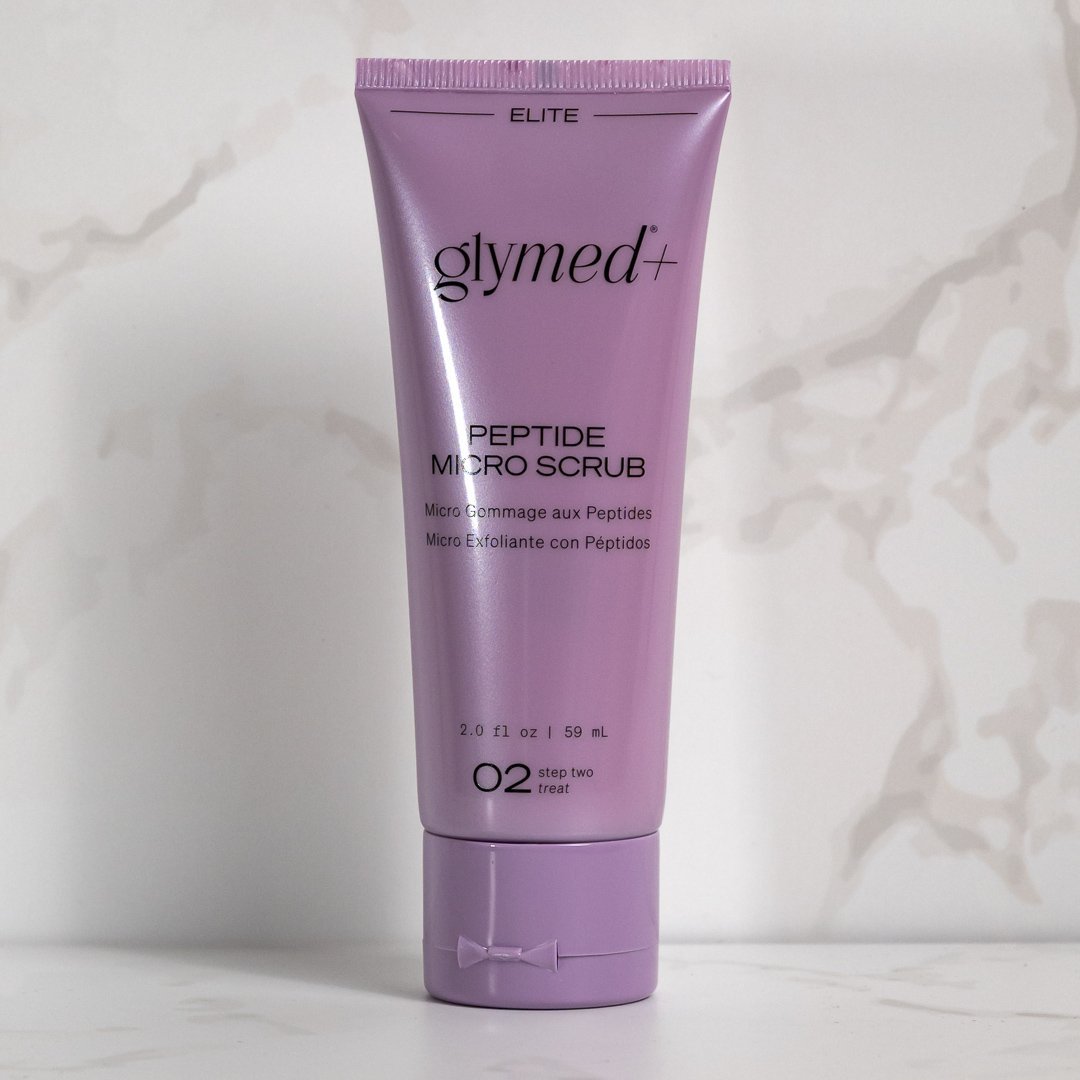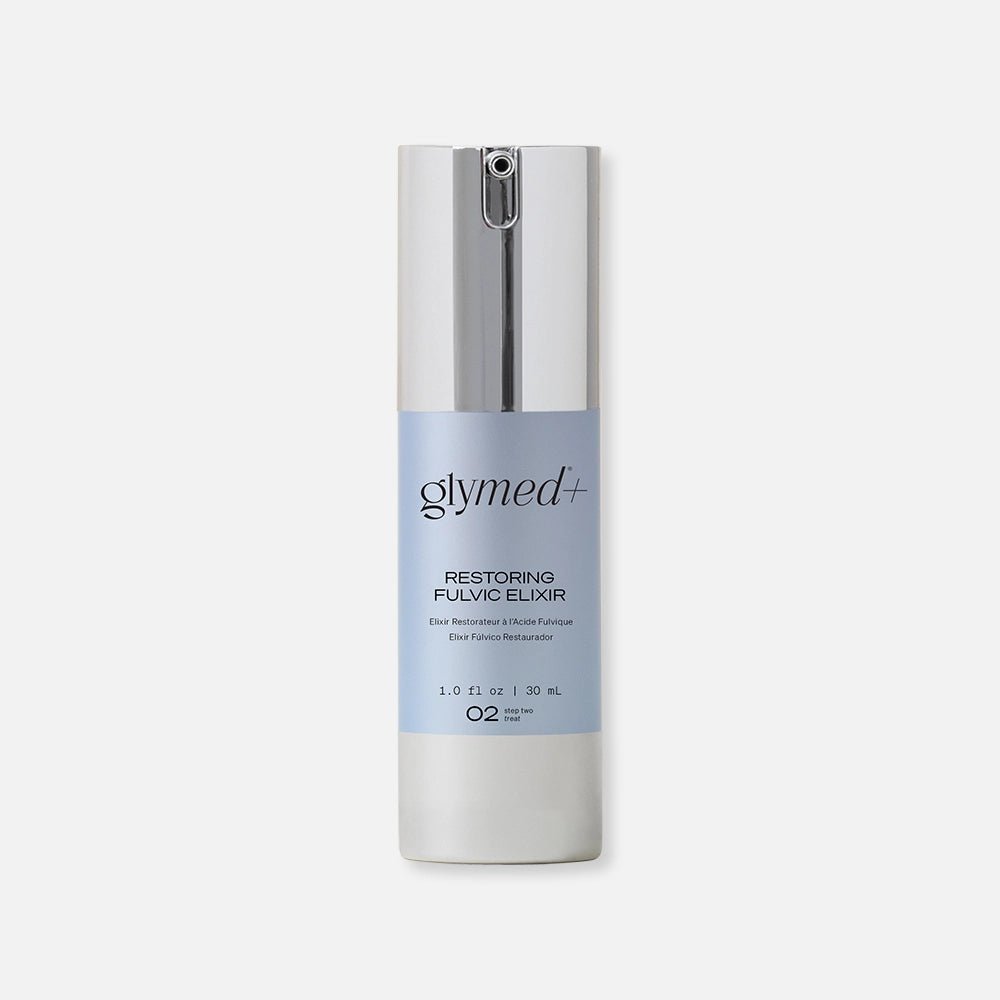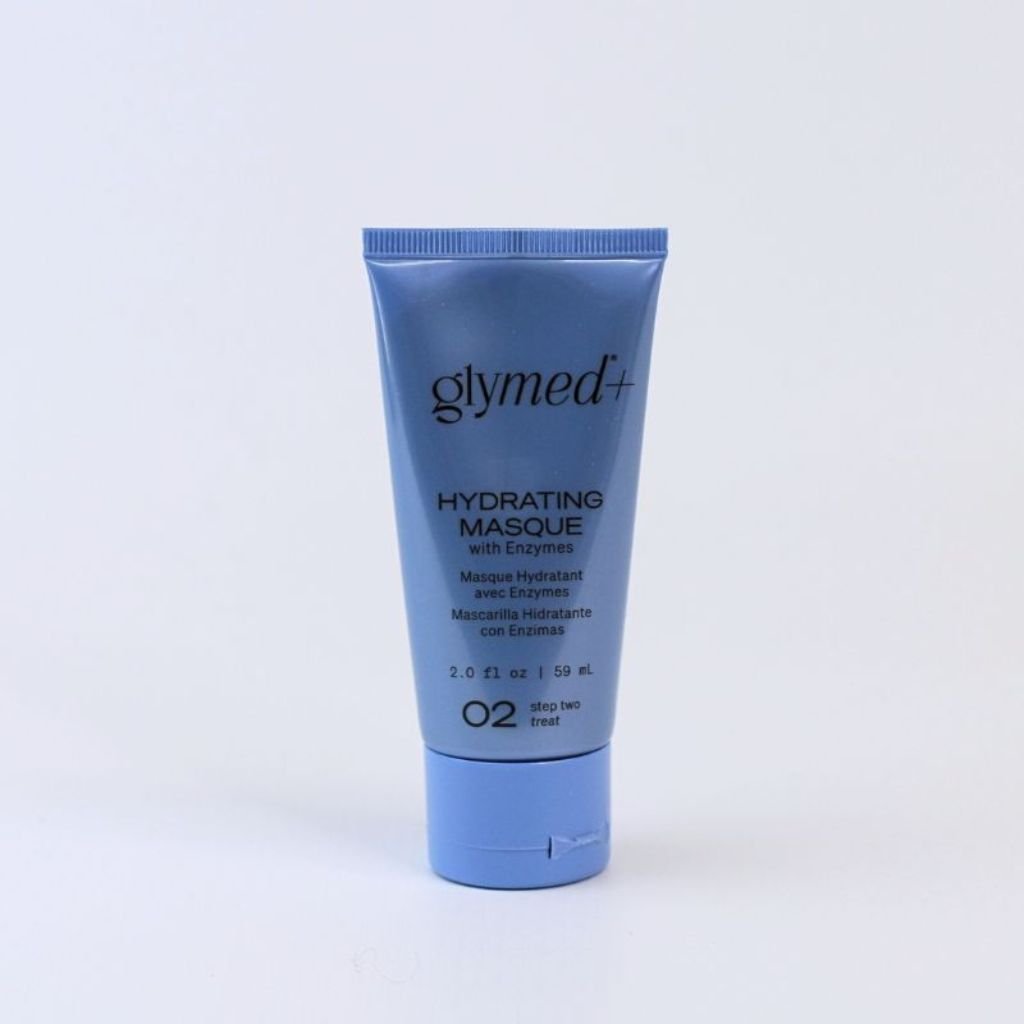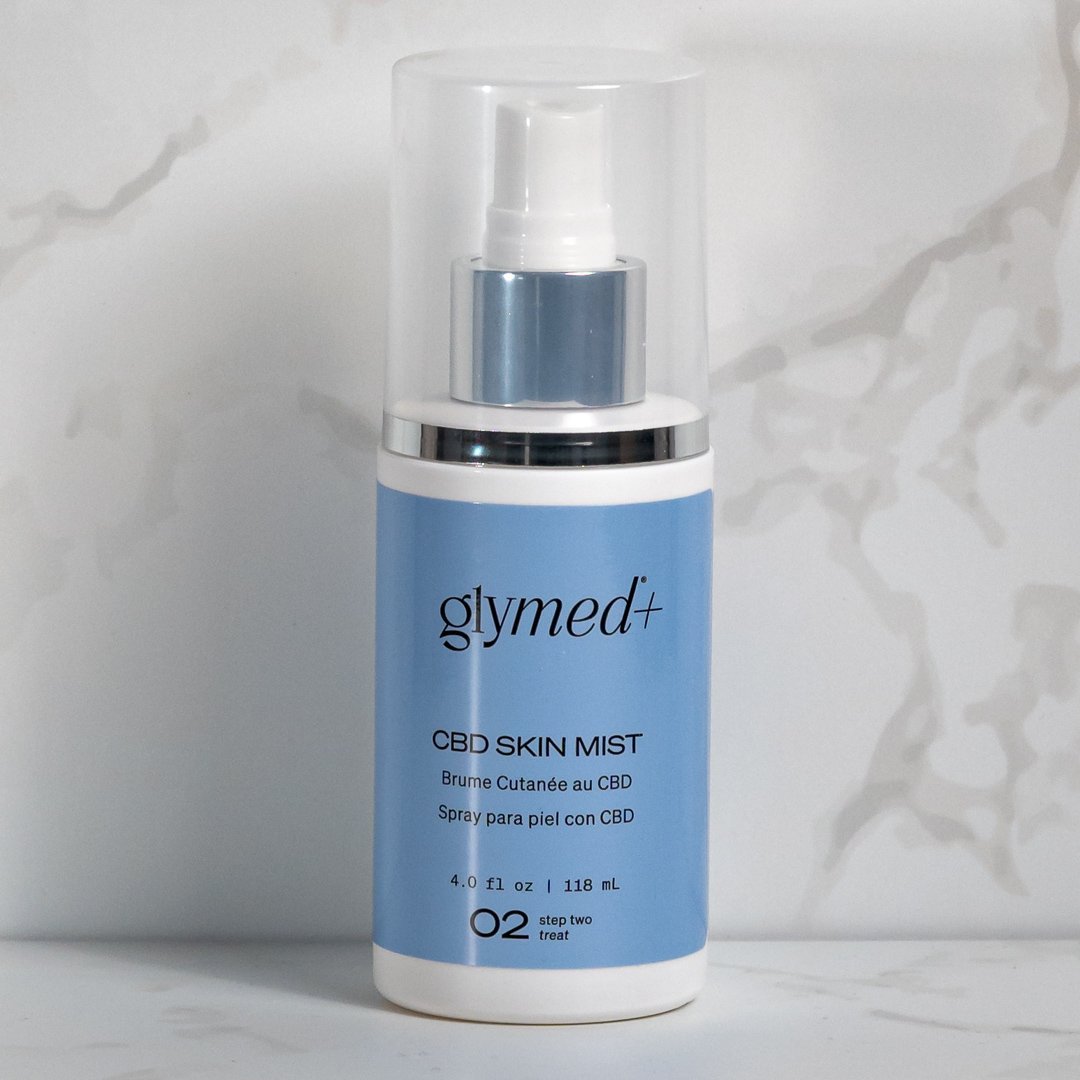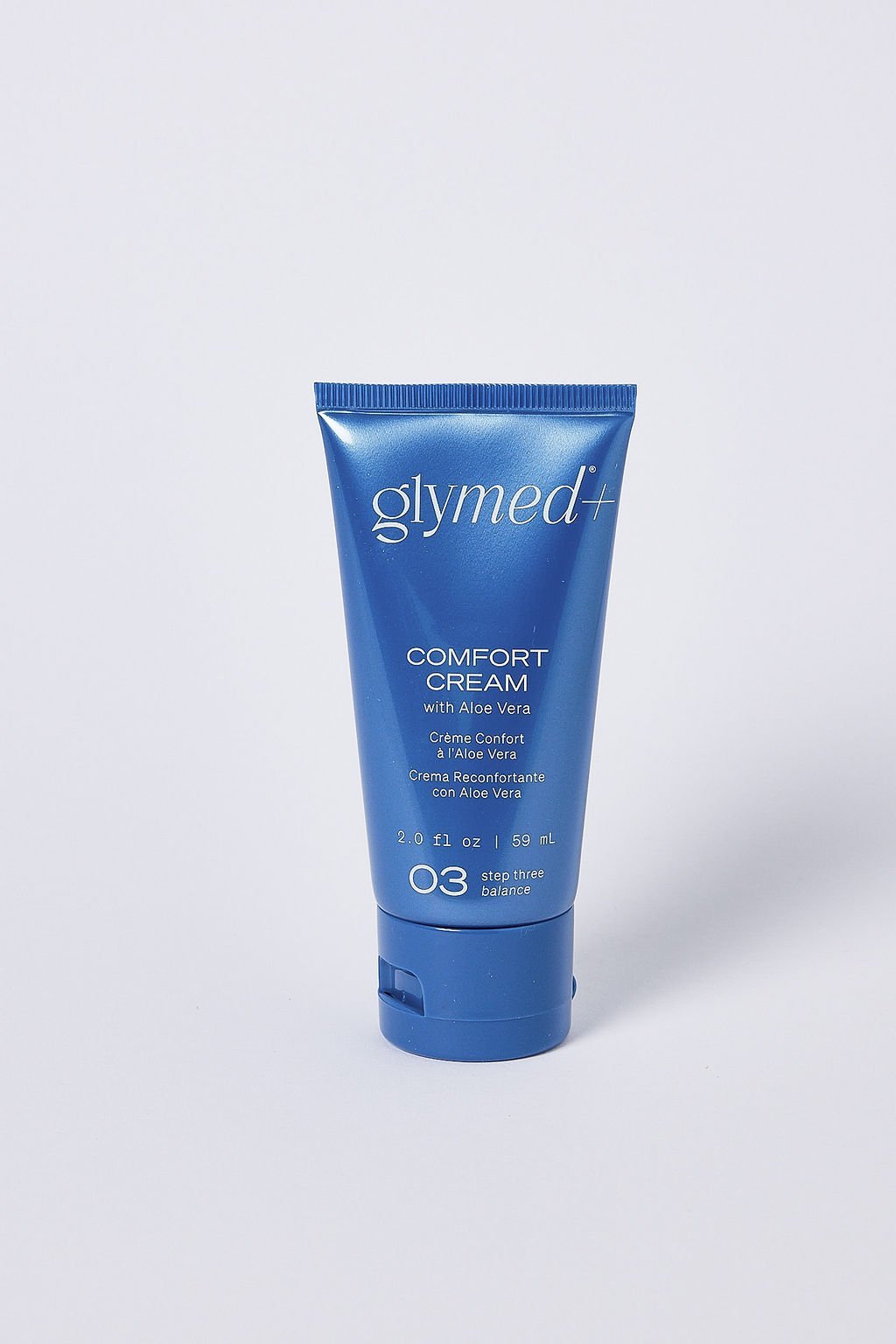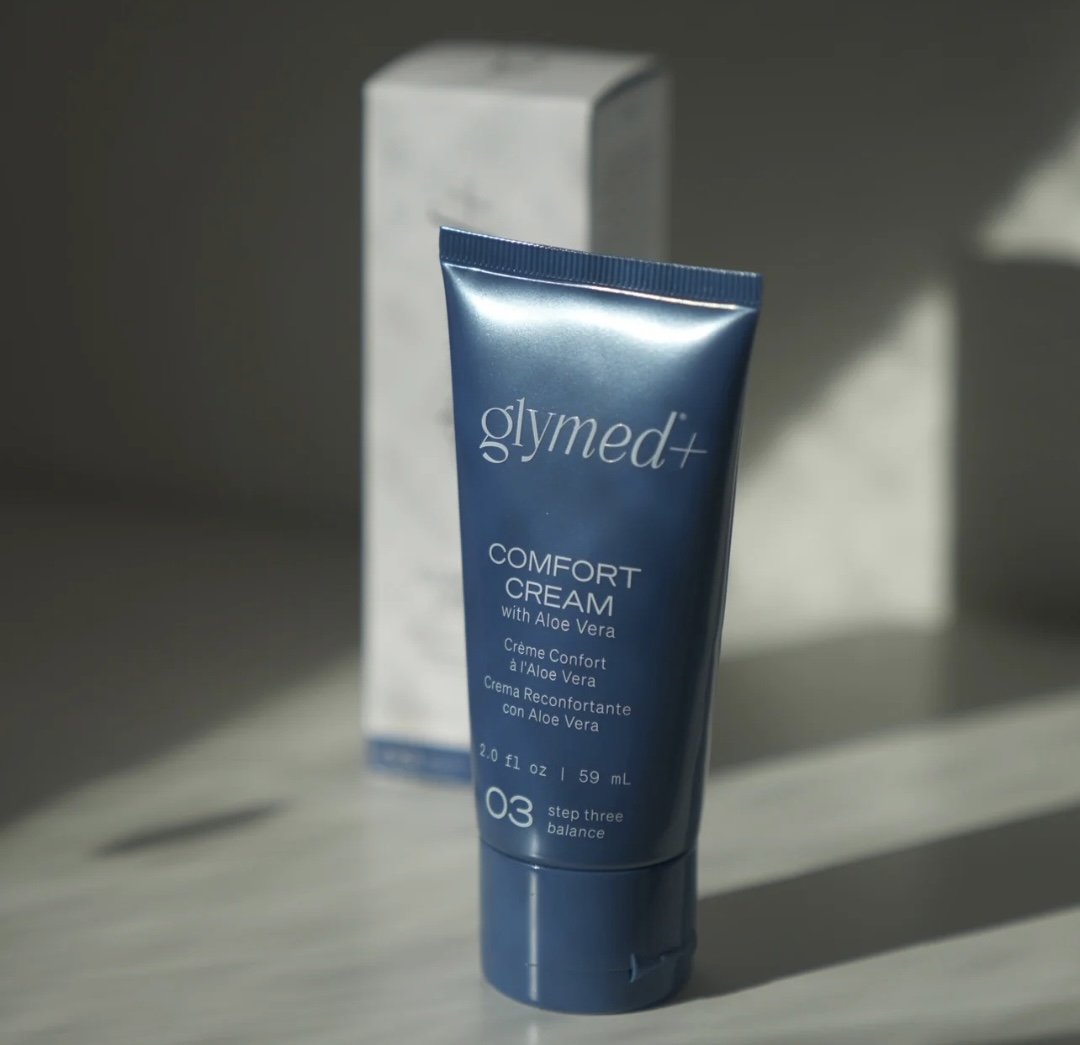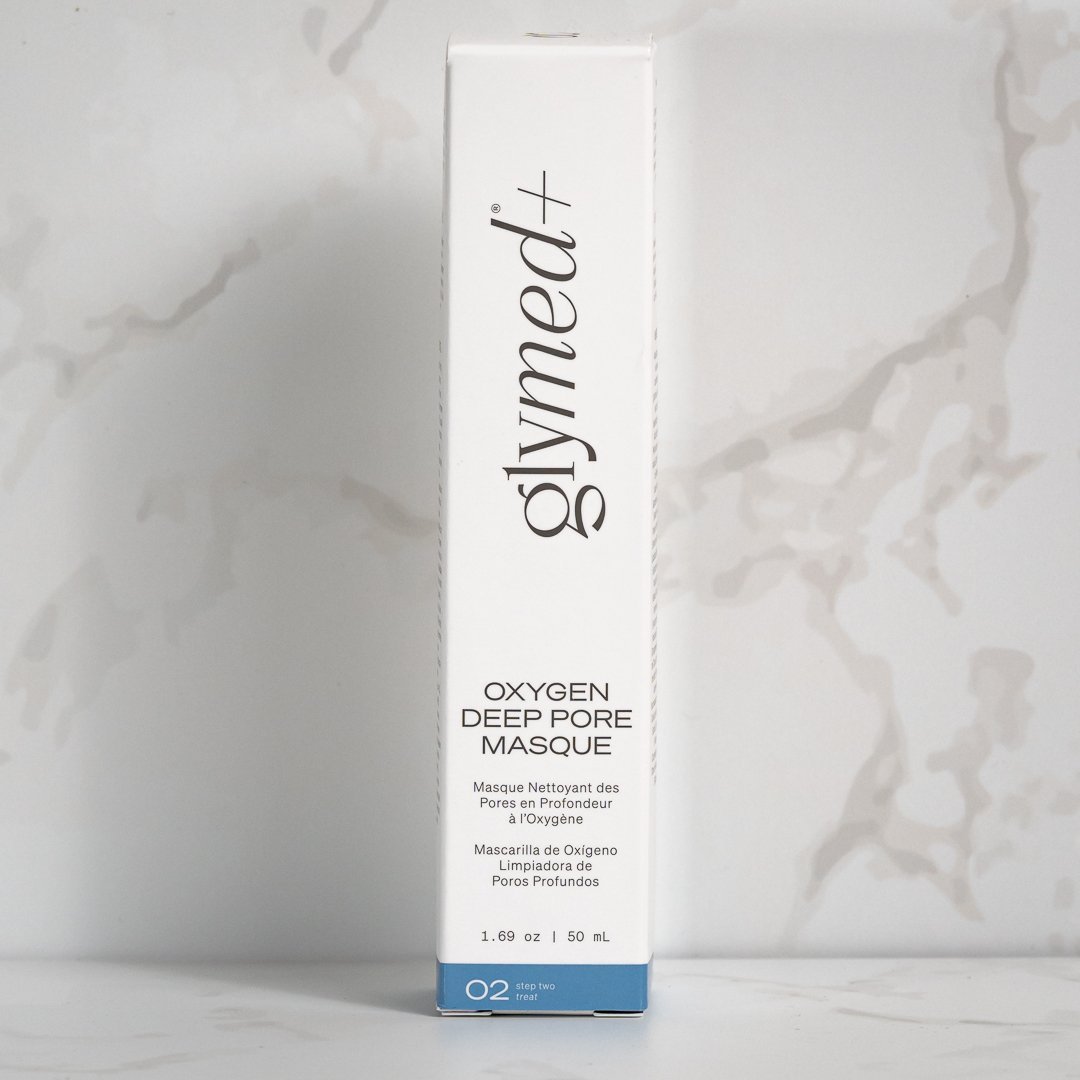
GlyMed+
Transforming skin for over 30 years
Proven to achieve long lasting results
-
CBD offers numerous benefits for the skin, making it a valuable ingredient in skincare products:
Moisturizing: CBD can help maintain skin hydration and balance, promoting a healthy complexion.
Soothing: Its calming abilities can alleviate irritation, making it suitable for sensitive skin.
Antioxidant Protection: CBD combats free radicals, which can damage skin cells and accelerate aging.
Regulating Oil Production: By controlling oil production in the skin, CBD may help prevent clogged pores and reduce the occurrence of acne.
-
1. VITAMIN C
Vitamin C is a popular ingredient in brightening products and for good reason: it's an antioxidant that neutralizes free radicals. Free radicals are unstable atoms from pollution and UV rays that damage other cells in your body. This damage can break down DNA, resulting in dark spots, wrinkles or acne on the skin. Vitamin C is the superhero your skin needs to reverse the damage (and dark spots) caused by free radicals. Plus, Vitamin C lightens dark spots since it inhibits melanin production. Look for concentrated serums like ourPigment Brightening Serum, which utilizes L-ascorbic acid–the most potent form of Vitamin C.
2. NIACINAMIDE
Also known as Vitamin B3, niacinamide brightens your skin and reduces the appearance of hyperpigmentation. Like Vitamin C, it blocks melanin production to lessen dark spots without irritating your skin. If you have a sensitive skin type, look for products that contain niacinamide like ourCBD Skin Mist.
3. ALPHA HYDROXY ACIDS
(AHAS) AHAs are exfoliating acids that can resurface and brighten your skin. Glycolic acid and lactic acid are two of the most popular AHAs. They work to improve skin texture and promote an even complexion by sloughing off dead skin cells. In turn, this stimulates cellular turnover to reveal the brighter, newer skin underneath.
4. RETINOIDS
Retinoids—whether they're prescription-strength or over-the-counter—are a go-to for brightening skin and reducing dark spots. These derivatives of Vitamin A work by accelerating skin cell turnover, pushing out the old cells with dark pigmentation and creating room for new, fresh ones.
5. LICORICE ROOT EXTRACT Licorice root contains an active compound called glabridin. This compound inhibits the production of melanin, making it a natural and gentle way to brighten skin and fade dark spots. It also has anti-inflammatory properties, which calm red, irritated skin, keeping your skin tone even and flesh-colored. Look for products that contain licorice root extract like ourDaily Skin Clarifier.
-
It may feel overwhelming when you start searching for the right ingredients—there are so many! But don't worry, we've narrowed down a few key ones that should be your go-tos when finding the perfect skincare routine: BENZOYL PEROXIDE Benzoyl Peroxide targets the bacteria associated with acne, effectively killing them and preventing future flare-ups. Additionally, benzoyl peroxide helps unclog pores, alleviate inflammation and shed excess cells more effectively. It’s no wonder this ingredient is known to be the most effective over-the-counter choice for treating acne. SALICYLIC ACID Salicylic acid is a great exfoliator, helping to remove dead skin cells that can clog pores. It also helps decrease inflammation, calming redness and irritation that often comes with acne breakouts. The antiseptic properties of salicylic acid help to reduce the bacteria that can cause breakouts, further contributing to acne prevention. RETINOIDS (RETINOL) Retinol, a retinoid derived from Vitamin A, offers many benefits in skincare for acne. One primary benefit lies in its ability to help reduce inflammation and unclog pores. Another impressive benefit is their capacity to even out skin discoloration. In addition, it can even help improve skin texture by stimulating collagen production and improving skin elasticity. NIACINAMIDE Niacinamide, otherwise known as Vitamin B3, helps the skin retain moisture. By promoting better moisture retention, it helps maintain optimal hydration levels, which is important for acne-prone skin. Well-hydrated skin strengthens the skin's barrier, reducing the chance of external irritants causing breakouts. It also regulates sebum production, ensuring that oil glands don't overcompensate and clog pores, causing acne. One more pro tip for keeping your skin hydrated: when moisturized, your skin promotes efficient cell turnover, which prevents dead skin cells from blocking pores. Not only does Niacinamide bolster the skin's natural barrier, but it also speeds up its self-repair mechanisms. Plus, it's a warrior against acne-causing bacteria. ZINC PCA Zinc is an antioxidant that has anti-inflammatory properties. This makes it an effective ally in promoting a calmer and more balanced complexion. Zinc PCA also can regulate oil production in the skin. By controlling overactive sebum production, it prevents sebum from clogging your pores, thereby reducing the likelihood of developing acne. TEA TREE OIL Tea tree oil is a natural ingredient with incredible antiseptic properties that have been proven to help fight bacteria associated with acne. It also reduces inflammation caused by acne. In addition to its acne-fighting abilities, tea tree oil nourishes the skin, making it a valuable ingredient in skincare for acne. ALPHA HYDROXY ACIDS (AHAs) Alpha hydroxy acids (AHAs) are a group of exfoliating ingredients that help reduce the buildup of dead skin cells and unclog pores. These exfoliators are also known for their ability to brighten and even out skin tone. One to specifically look out for is mandelic acid, which is especially gentle on sensitive skin. With its large molecular size, it slowly penetrates the skin, minimizing the likelihood of irritation. SULFUR Sulfur is a natural antibacterial agent that helps reduce redness and unclog pores by removing dead skin cells and excess sebum. It also absorbs oil, making it an excellent option for those with oily or combination skin types. By controlling excess oil production, sulfur helps control shine and keeps your skin looking matte.

